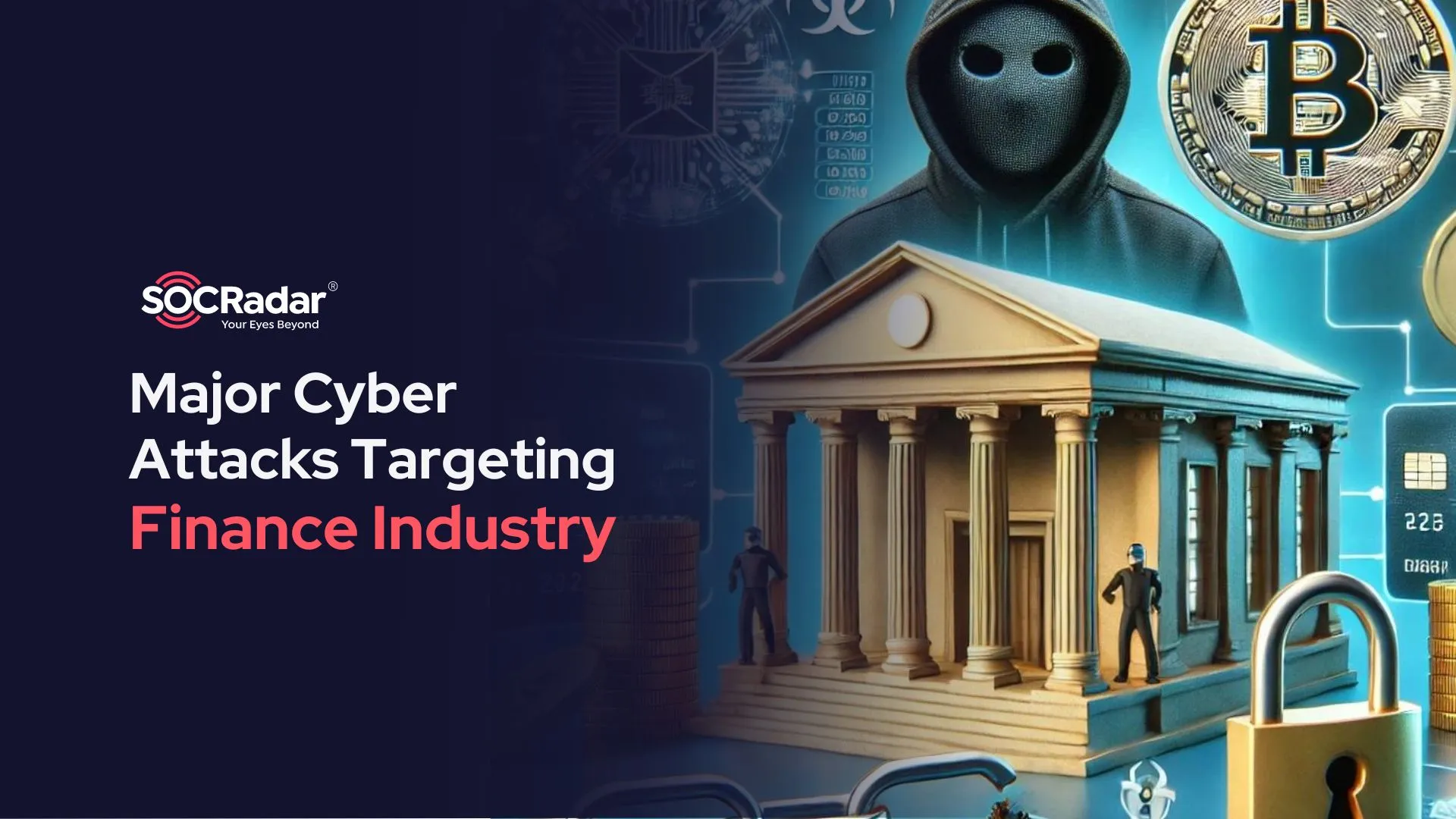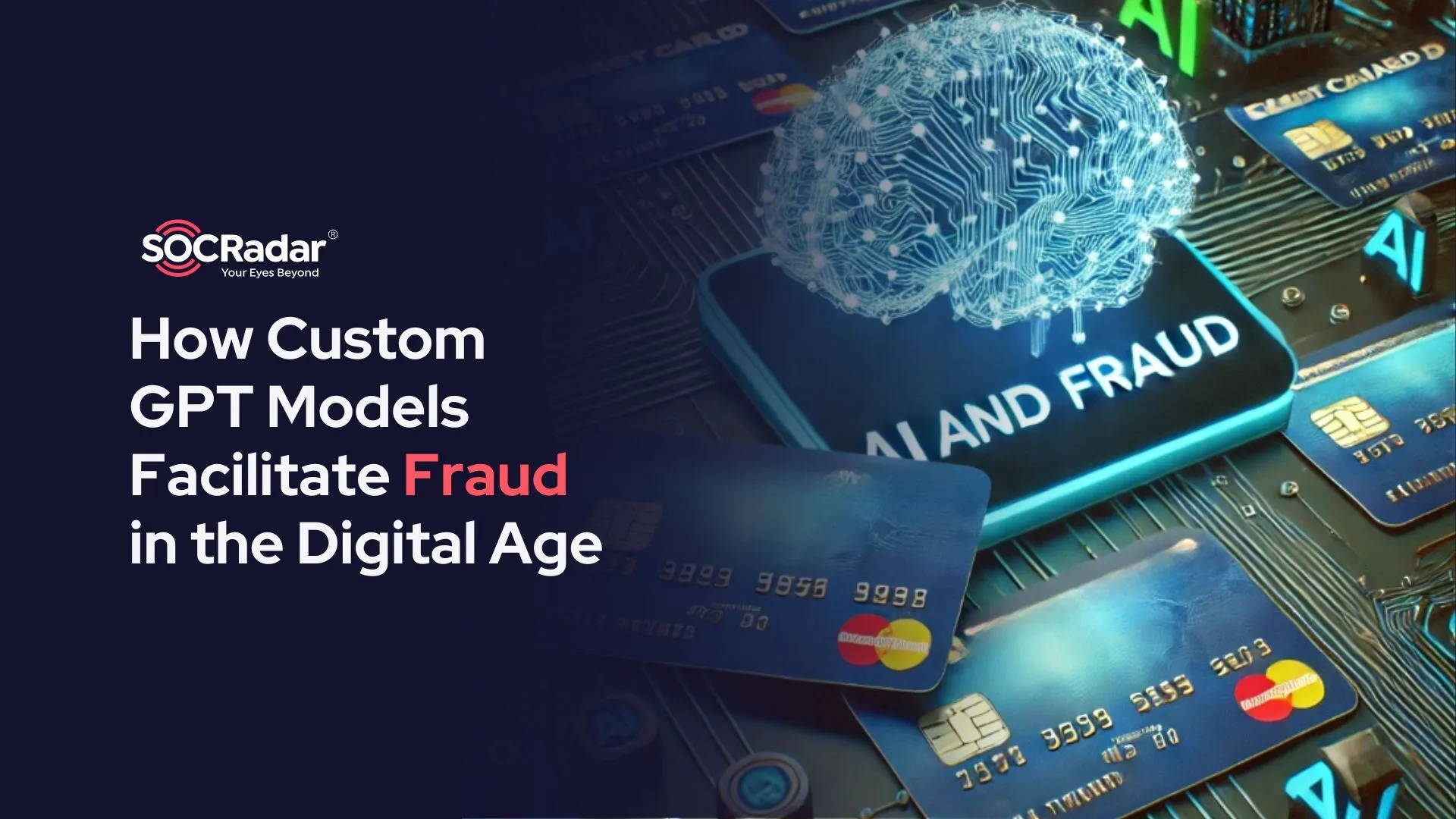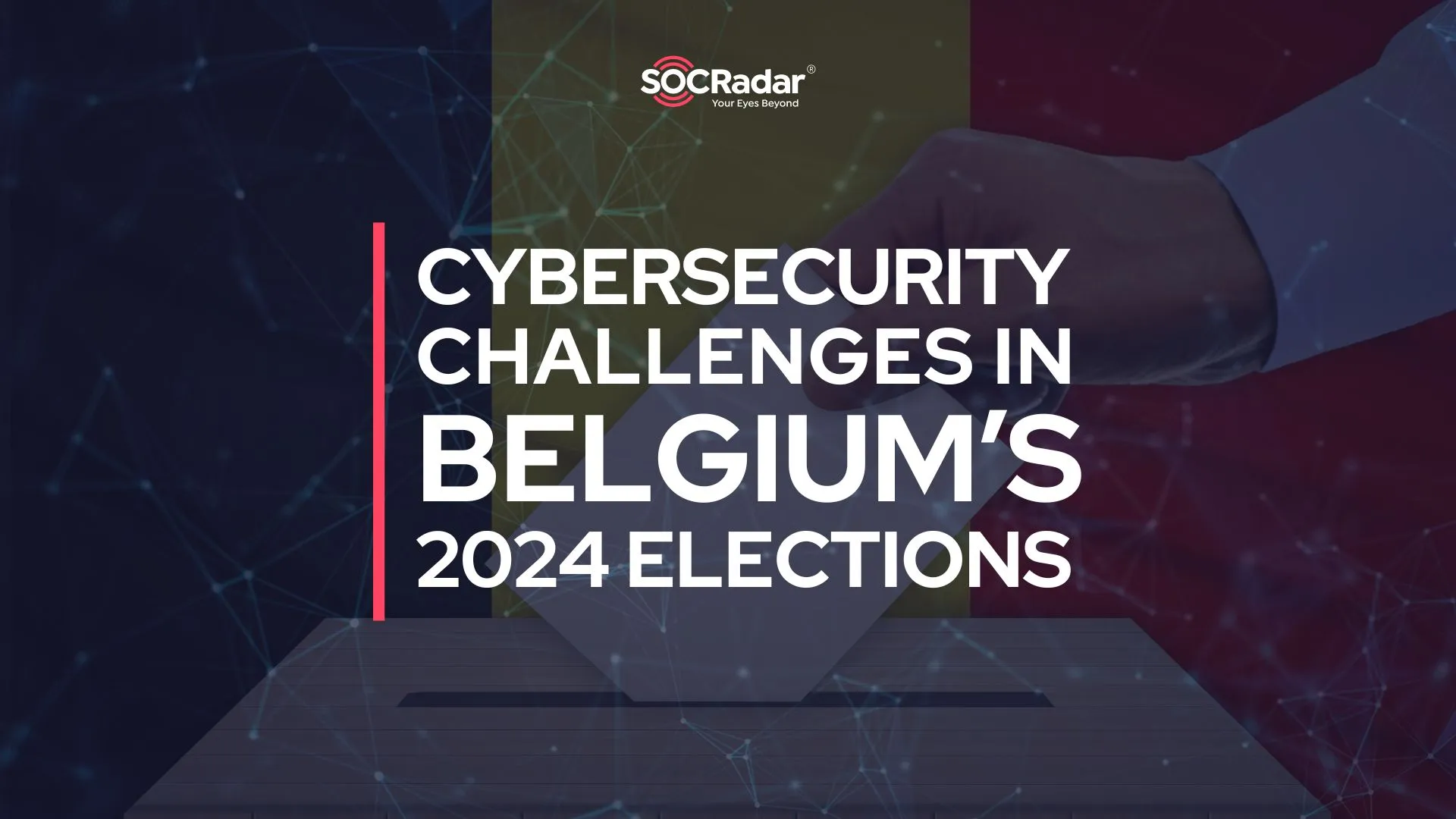
Cybersecurity Risks for the Upcoming 2024 Elections in Belgium
In 2024, a significant part of the world will vote in national elections to select their new leader, and Belgium is one of those nations. Federal elections are scheduled for June 9, 2024, and the European and regional elections are scheduled for the same day.
As Belgium prepares for another election cycle, the presence of cyber threats is creating risks to the democratic process. In today’s society, where technology is everywhere, elections are no longer just about physical places but also about the digital world.
In this article, we explore the complex network of cyber threats that endanger the integrity of Belgium’s democratic institutions. Certain risks are more prevalent than others, and here we’re highlighting the growing dangers of deepfake manipulation, disinformation campaigns, data breaches, hacktivist actions, and cyber intrusions backed by foreign governments. Our goal is to explain the challenges of protecting electoral integrity in today’s digital age.
As government agencies and stakeholders work to strengthen electoral defenses, grasping the nature and extent of these cyber threats is crucial to upholding democracy’s core principles in Belgium.
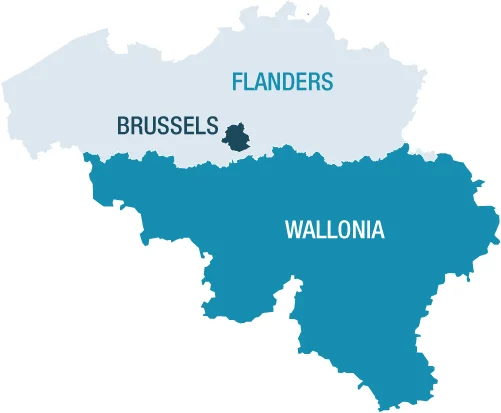
Belgium is divided into three regions. Flanders, Wallonia, and Brussels
Picture: KU Leuven
Belgium’s Cybersecurity Strategy
Centre for Cyber Security Belgium covers certain risks in their document on Belgium’s cyber security strategy between 2021-2025. The document presents an overview of the pain points Belgium should be careful of and develop itself to overcome particular challenges in cyberspace. The document highlights the risks, strategic objectives, and responsibilities of the related organizations.
The strategy document divides the risk category into two parts: “Threat Actors” and “Technology Risks and Trends”.
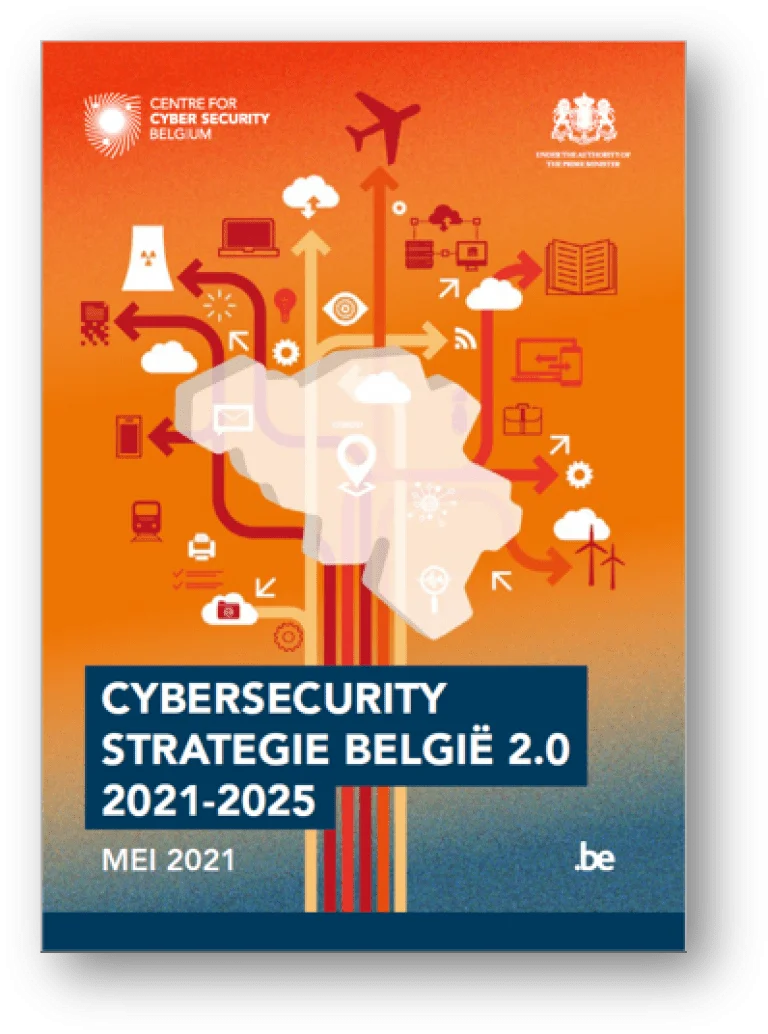
Cybersecurity Strategy Belgium 2.0 2021-2025
While certain risks are rising due to the rapid deployment of new technologies, threat actors Belgium’s Centre for Cyber Security worry about portraying a more significant risk for the upcoming elections in the country. Authorities point to cybercrime, foreign security services, hacktivism, and terrorism as the main threats to pay attention to.
Cybercriminals pose an escalating threat by targeting infrastructure and compromising digital data security, aiming for financial gain through phishing and ransomware. These criminals offer specialized services on the Dark Web, accessible to anyone willing to pay, thereby exacerbating the threat landscape.
Intelligence agencies, equipped with advanced resources, exploit cyber means to inflict economic harm, sow political instability, and weaken adversaries’ defenses, contributing to the complexity of cyber threats.
Additionally, hacktivists leverage cyber tools to advocate for political, religious, or social causes, further blurring the lines between cybercrime and activism.
Furthermore, cyberterrorism emerges as a significant concern, utilizing the internet for violent activities aimed at gaining political advantage through intimidation and fear, targeting public services, industries, and critical infrastructures. In addition to those, terrorist groups exploit online platforms for propaganda and recruitment, exploiting vulnerabilities in digital communication channels to advance their agendas.
If Belgium’s Centre for Cyber Security is concerned about these risks, it’s crucial to exercise caution regarding threat actors from these domains and obtain timely and accurate intelligence. You can review SOCRadar’s in-depth Threat Reports to examine the cyber threat landscape across various areas.
Deepfake & AI
The emergence of deepfake technology is a serious risk to the integrity of political discourse worldwide, and Belgium has experience with deep fake content. Back in 2018, the Flemish Socialist Party (named Vooruit since 2021) fabricated a video of Donald Trump urging the country to leave the Paris climate agreement.
Another case occurred in 2020. Extinction Rebellion, a UK-founded global environmental movement, circulated a deepfake video depicting the Prime Minister advocating for urgent action on economic and climate crises. This manipulation not only undermines public trust but also fuels the disinformation domain, making the works of other malicious actors easier.
These instances underscore how easily deep fake technology can be weaponized to manipulate public perception and promote political agendas. While some cases can be swiftly identified, this isn’t always the situation, and misleading media can spread misinformation before clarification is provided. Effective regulations should be established to combat such actions. Collaboration with fact-checking organizations can be instrumental for this purpose.
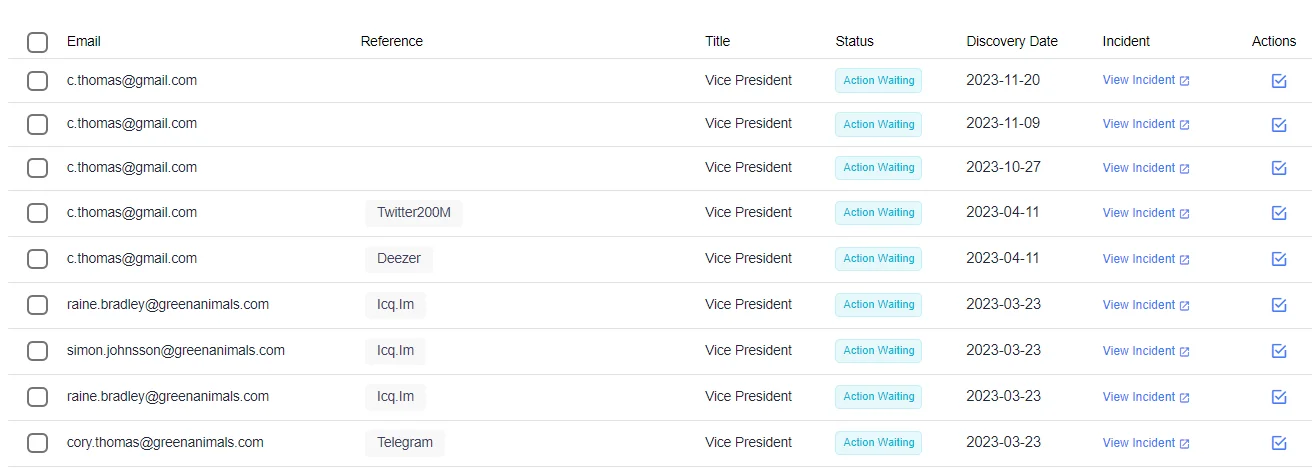
SOCRadar VIP Protection Module
Both of the examples above targeted significant political figures. Information originating from top leadership is inherently more crucial and impactful. Therefore, safeguarding leadership is paramount for any organization worldwide. You can explore SOCRadar’s VIP Protection module to ensure your leadership’s digital safety.
Disinformation Risks in Belgium’s Upcoming Elections
Elections present a ripe breeding ground for disinformation campaigns to thrive. According to the Wilson Center’s findings, Russia’s covert influence over far-right and far-left groups across Europe, including Western Europe, poses a significant threat. This foreign interference can sow discord, amplify extremist ideologies, and undermine the democratic process itself. With radical groups gaining traction in various European nations due to other political struggles the nations face, in our case Belgium and the rise of the far-right, the risk of foreign interference intensifies and weakens the government’s ability to combat Russia.
While disinformation campaigns can originate from seemingly ordinary accounts, this is not always the case. Threat actors can also try to imitate other brands and organizations, such as news agencies, to spread their content faster among citizens. Fake accounts can closely resemble original news sources, using similar logos and social media handles to deceive individuals into spreading highly controversial messages.
Protecting your brand is important, and these kinds of fraudulent activities where threat actors try to imitate your brand will harm the communication between you and your customers. You can try SOCRadar’s Integrated Takedown module to protect the value of your brand.
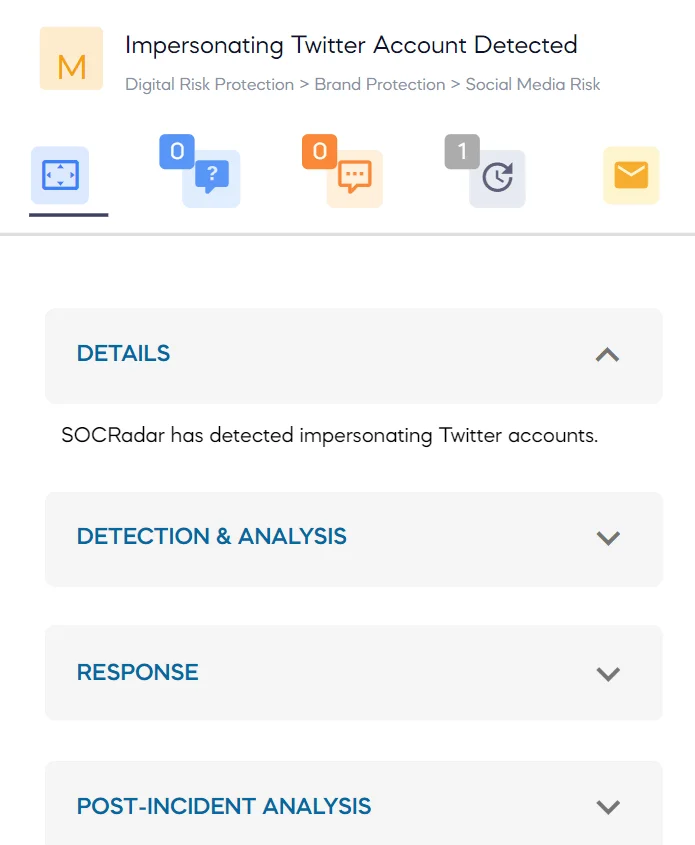
SOCRadar Integrated Takedown Module
The Belgian government must take a proactive approach against these threats. Raising awareness about disinformation tactics and educating the public on how to evaluate information on social media is crucial. Moreover, partnering with fact-checking organizations will be helpful, as it does in combating deepfake content.
Risks of Data Leaks for Belgium Elections
Leaked data can be utilized in various ways by threat actors. In our situation, they can be employed to spread disinformation, fabricate false votes, or for other malicious purposes that can damage the electoral process. There is a serious claim below about the leaked data of Belgian citizens.
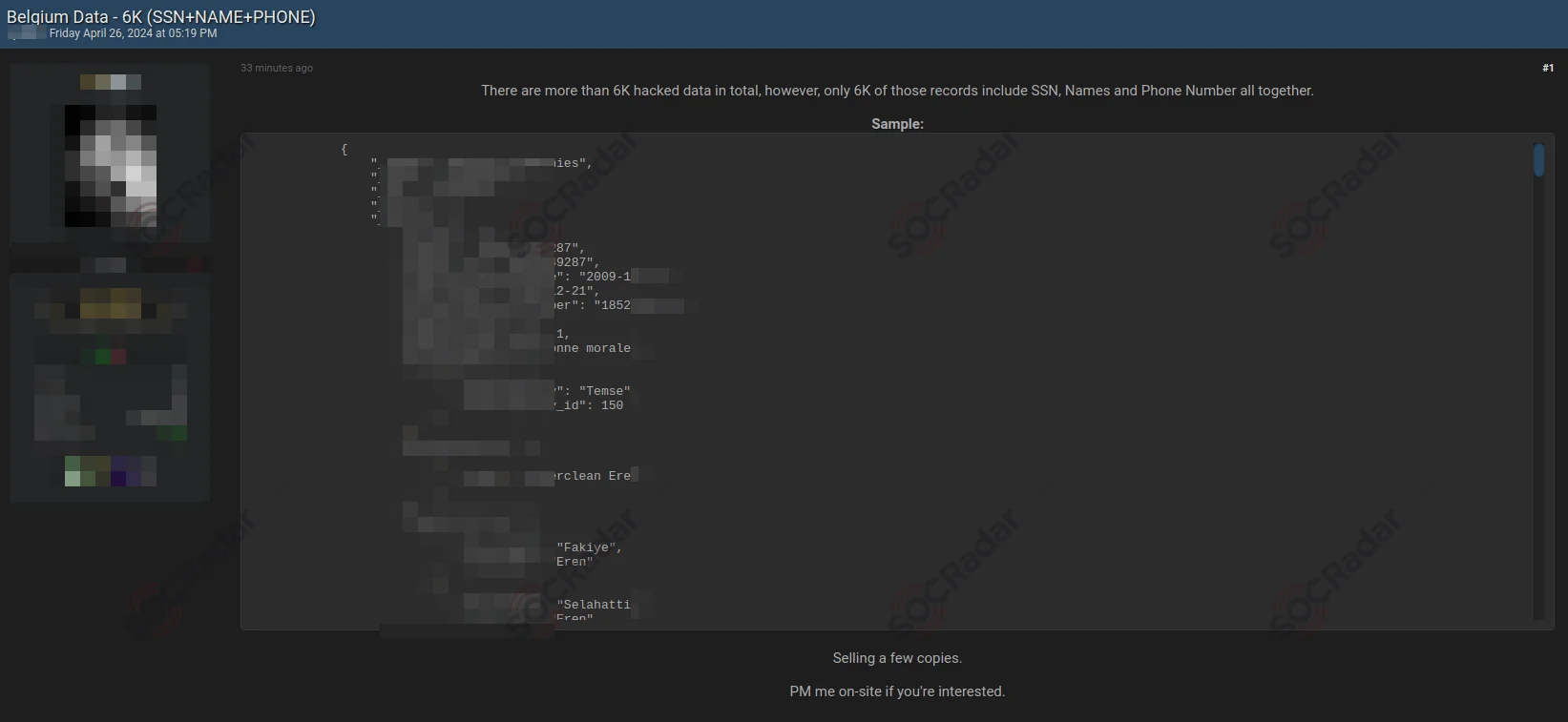
In a hacker forum monitored by SOCRadar, a new alleged data leak is detected for Belgian citizens
AI tools that can create fake documents are readily available for public use. Threat actors can fabricate fraudulent documents, leveraging the leaks for their objectives. Because of such tools, leaks of these kinds of personal information pose a serious threat to election security.
SOCRadar Dark Web News module guides you through the secrets of the dark web, uncovering leaked data before it’s too late. Stay steps ahead of cyber threats with our comprehensive product. Don’t wait until it’s too late.
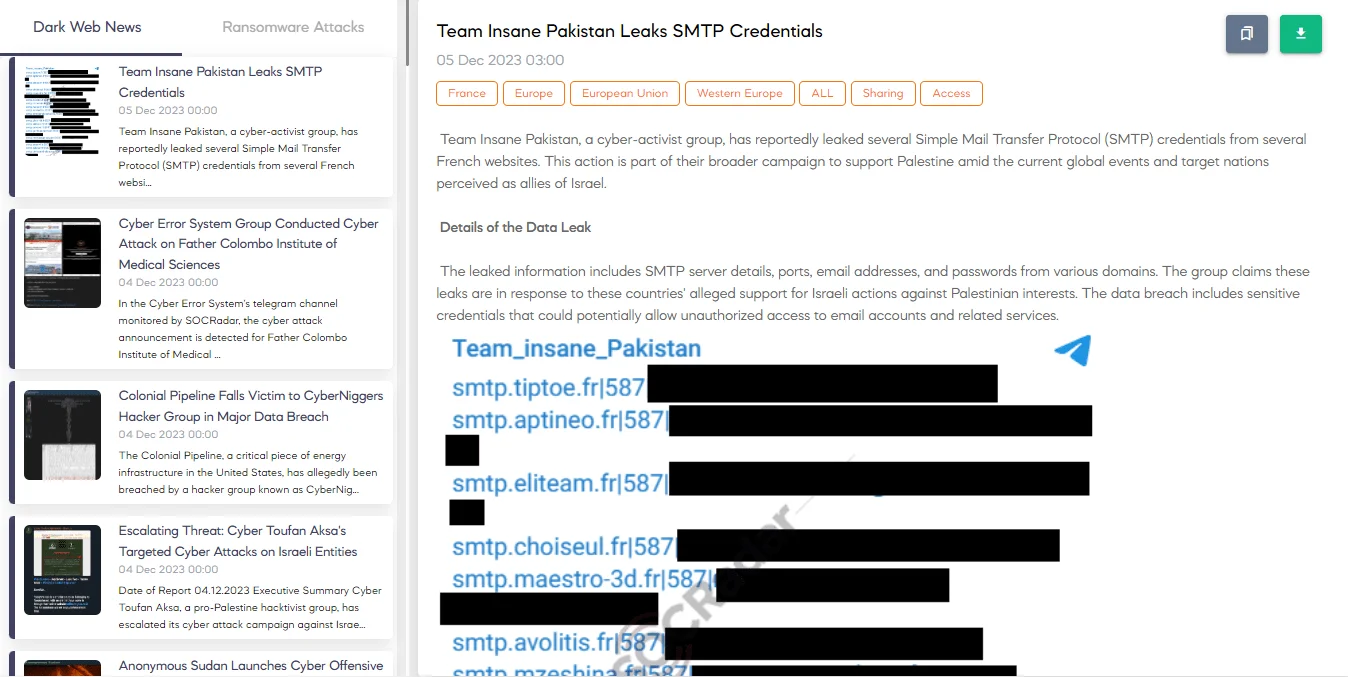
SOCRadar Dark Web News module
Hacktivism Risks for Belgium Elections
Hacktivists are digital activists engaging in malicious activities such as website defacement, Distributed Denial-of-Service (DDoS) attacks, data breaches, and leaking sensitive information to achieve their goals.
Due to political engagements around the world, countries may show solidarity and therefore face certain consequences. In Belgium’s case, it is the conflict between Israel and Hamas. Brussels is home to certain international organizations, including NATO. The alleged leak below shows a threat actor trying to sell data belonging to NATO, and it is stated that this action was taken for the sake of Palestinians.
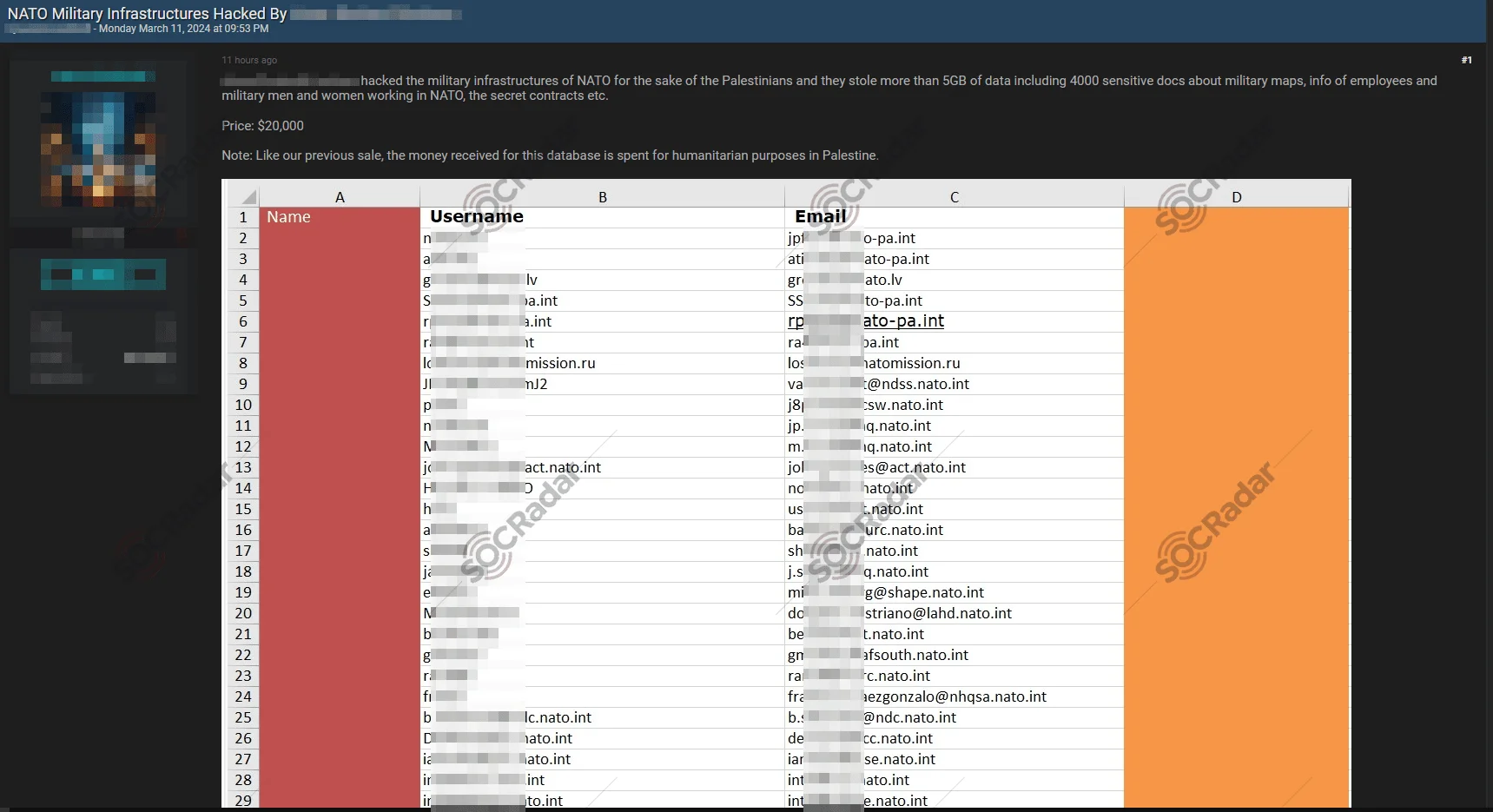
An alleged data sale for NATO Military Infrastructures detected in a hacker forum monitored by SOCRadar
Due to their involvement in the Israel-Hamas conflict, hacktivists with specific political or religious affiliations have been targeting the Western world. Belgium, home to many international organizations, faces an indirect risk from these attacks in the context of its elections. Hacktivists can steal or delete valuable information, manipulate elections, launch DDoS attacks, and jeopardize these international organizations, potentially leading to negative outcomes for Belgian authorities. These threat actors may also collaborate with state actors to spread disinformation campaigns, further complicating the information domain.
To prevent this, authorities must not only safeguard local systems and infrastructures but also collaborate with international organizations to ensure their security.
If you want to delve deeper into the cybersecurity-related implications of the Israel-Hamas conflict, check out our article.
Conclusion
The year of elections, 2024, presents certain risks to states worldwide. In Belgium’s case, some factors are more dangerous than others. Authorities are taking essential measures to safeguard the landscape from threats and are sharing important documents with the public to foster constructive discussions about the protection of the cyber frontier.
However, the surge in populism and the threat from hacktivists are the primary concerns for the upcoming elections in Belgium. Addressing these threats necessitates collaboration among various stakeholders, including public institutions, private organizations, and the general public.
If you aim to safeguard your organization and prevent threat actors from exploiting your data for their purposes, you can leverage SOCRadar Extended Threat Intelligence for all your Cyber Threat Intelligence (CTI) requirements. Protect your organization from hackers with comprehensive threat intelligence coverage.
































